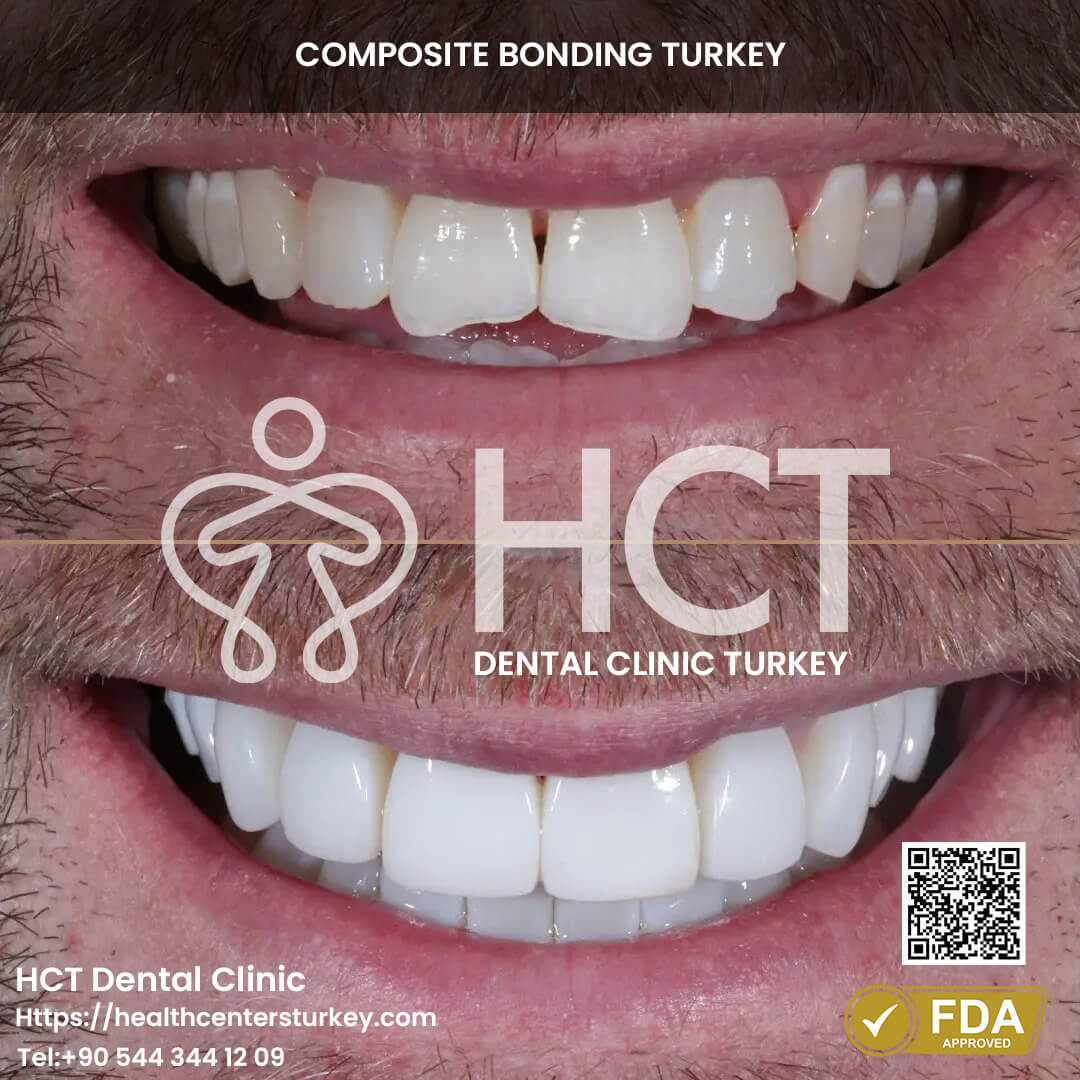Why Turkey is a Top Destination for Dental Treatments
Why Turkey is a Top Destination for Dental Treatments
Blog Article
Discover Affordable Oral Health Services in Turkey
Dental implants have become a popular answer for these trying to replace missing teeth. Understanding how these implants can affect adjacent teeth is important for anybody considering this process, in addition to for dentists and specialists concerned in dental care.

One vital aspect is that dental implants are designed to be anchored into the jawbone, which implies they are independent of adjacent teeth. Unlike dental bridges, which regularly require the alteration of neighboring teeth, implants can fill the hole without compromising the health or structure of these surrounding teeth.
This independence helps keep the integrity of adjacent teeth. When a tooth is misplaced, there could be a natural tendency for neighboring teeth to tilt or shift into the empty space. Such motion can lead to misalignment, which might affect chunk and total oral health. By inserting an implant, you successfully prevent this potential shift, promoting higher alignment in the long term.
Revitalize Your Smile with Leading-Edge Dental Treatments in Turkey
Additionally, dental implants assist preserve bone density within the jaw. A natural tooth root offers stimulation to the surrounding bone, maintaining it healthy and robust. When a tooth is missing, the bone can start to deteriorate as a outcome of lack of stimulation. With a dental implant mimicking a natural root, bone loss could be minimized, which not directly benefits adjacent teeth by preserving the overall structure of the dental arch.
While dental implants are advantageous, improper placement can impression neighboring teeth. If an implant is positioned too close to another tooth, it might exert undue strain on that tooth, resulting in discomfort or potential harm. Proper planning and imaging strategies are important for avoiding such issues.
Complete Smile Transformation Services Available in Turkey
Moreover, sustaining good oral hygiene is crucial after receiving an implant. If not correctly cleaned, surrounding teeth might turn into vulnerable to dental issues similar to decay or gum disease. This underscores the significance of diligent oral care following the procedure to make sure both implants and adjacent teeth remain wholesome.
Regular dental check-ups are also very important for monitoring the health of surrounding teeth. Dentists can establish any shifts or potential problems early, allowing for well timed interventions. This proactive method ensures that each the implant and adjacent teeth can coexist with out complications.
The Growing Popularity of Dental Treatments
Another consideration is the impact of implants on chunk force. When a single tooth is missing, the load of chewing might shift to adjacent teeth, doubtlessly leading to put on or pressure. Implants restore proper chew dynamics by redistributing forces within the mouth, which can shield surrounding teeth from undue stress.
Some sufferers may increase issues about the appearance of dental implants. Well-placed implants can blend seamlessly with current teeth, bettering general aesthetics. In distinction, failing to switch a missing tooth can lead to aesthetic issues, together with collapsing of facial structure and adjustments in smile dynamics.
It's also value discussing the psychological features of dental health. Experiencing tooth loss can adversely affect one’s vanity and willingness to interact socially. By restoring your smile with implants, you'll be able to positively influence not solely your oral health but additionally your emotional well-being.
Long-term success of dental implants usually hinges on various factors, including the patient's health, maintenance habits, and the standard of the preliminary process. If adjacent teeth are wholesome and correctly cared for, the chances are they will continue to thrive alongside the implants.
Exceptional Dental Procedures designed for Tourists in Turkey
In conclusion, dental implants play a crucial role in not just restoring individual smiles, but in preserving the health and structure of adjacent teeth. By preventing shifting, sustaining bone density, and redistributing chew forces, implants can make certain that surrounding teeth stay in optimum condition. Proper placement, hygiene, and common dental visits can additional improve the advantages of dental implants, resulting in a more healthy, extra assured smile for years to come back.
- Dental implants may help keep the alignment of adjacent teeth by providing a steady anchor, preventing adjacent teeth from shifting into the gap left by a missing tooth.
- The presence of an implant might stimulate bone growth within the jaw, helping to preserve the overall structure and integrity of the adjacent teeth.
- Unlike conventional bridges, implants do not require alteration of surrounding teeth, thus preserving their power and anatomy.
- Implants can improve the distribution of chew forces evenly throughout the dental arch, decreasing the stress on neighboring teeth during chewing.
- A well-integrated dental implant can lower the danger of bone loss in the area surrounding adjacent teeth, contributing to their long-term health and stability.
- The aesthetics of adjacent teeth can be improved because of the support supplied by implants, which might result in higher overall cosmetic outcomes.
- With correct placement, dental implants can prevent gum recession round adjacent teeth by sustaining adequate dental architecture.
- Implants may help mitigate the risks of periodontal disease in close by teeth by promoting healthy gum tissue and providing a washable floor.
- Long-term success of dental implants can lead to improved oral hygiene routines, which in turn advantages the health of surrounding teeth.
- The improved useful ability of an implant can encourage patients to chew more successfully, thus increasing saliva manufacturing and aiding in the protection of adjacent dental tissues.undefinedHow do dental implants have an result on adjacent teeth?
What are dental implants and the way do they interact with adjacent teeth?undefinedDental implants are synthetic tooth roots that are surgically positioned into the jawbone. They provide a stable basis for replacement teeth while ensuring minimal disruption to adjacent teeth, preserving their integrity and alignment. Leading Dental Implants Available in Turkey.
A Comprehensive Look at Dental Procedures in Turkey
Can dental implants trigger problems for close by natural teeth?undefinedGenerally, dental implants do not harm adjacent natural teeth. click over here However, if the implant just isn't placed correctly or if there’s insufficient oral hygiene, it might lead to issues similar to adjacent tooth decay or gum disease.

Will getting a dental implant change the way in which my adjacent teeth feel?undefinedMost patients report no change in the sensation of adjacent teeth after implant placement. However, it may take some time to adjust to the presence of the implant, similar to how one could adapt to different dental restorations.
Can dental implants assist protect the health of adjacent teeth?undefinedYes, dental implants might help keep the health of adjacent teeth by preventing bone loss that can happen after tooth loss. This preservation helps the alignment of close by teeth, decreasing the danger of shifting or misalignment.
Rejuvenate Your Oral Health with Leading-Edge Dental Treatments in Turkey
Do I want to modify adjacent teeth when getting an implant?undefinedTypically, adjacent teeth don't need alteration when inserting an implant. This is likely certainly one of the benefits of dental implants over conventional bridges, which often require reshaping adjacent teeth for help.
How does the therapeutic strategy of an implant have an result on nearby teeth?undefinedThe healing course of entails osseointegration, where the implant fuses with the jawbone. During this time, adjacent teeth stay unaffected and retain their function, although it’s essential to follow post-operative care recommendations. The Advantages of Dental Treatments in Turkey for International Patients.
Discover Highly Regarded Dental Clinics around Turkey
Can dental implants lead to bone loss around adjacent teeth?undefinedIf dental implants are positioned properly and cared for adequately, look at this now they should not result in bone loss around adjacent teeth. In fact, they may help stimulate bone progress, combating the natural bone loss that often follows tooth extraction.
What precautions ought to I take to protect adjacent teeth after getting an implant?undefinedRoutine dental hygiene, together with brushing and flossing, along with regular dental check-ups, is essential. Avoiding hard meals and following your dentist’s aftercare instructions may even shield both the implant and adjacent teeth.
Is it frequent for adjacent teeth to shift after an implant is placed?undefinedIt's not typical for adjacent teeth to shift after an implant placement, especially when the implant is positioned correctly and maintained correctly. If there’s any movement, it could be as a end result of different underlying issues that must be evaluated by a dental professional. Report this page